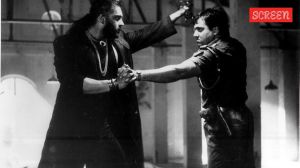In new book from dissident,a warning on China
Now a new book is about to fill in the silence.
For a year,Liu Xiaobos empty,blue chair at the Nobel Peace Prize ceremony in Oslo in December 2010 was almost the only thing that spoke to the world on behalf of the jailed laureate. Now a new book is about to fill in the silence.
No Enemies,No Hatred is the first English-language collection of works by Liu,a former university professor sentenced in December 2009 to 11 years in prison for incitement to subvert state power.
In two dozen essays and 15 poems written between 1989 and 2009 and a document collection showing Lius path through the courts and into jail,the book offers one of the most impressive analyses of China today, as well as an important warning to those hoping the cash-rich country can save the world economy,said Perry Link,one of three editors.
The image of China in the West is superficial compared to Liu Xiaobos, said Link,a leading scholar of modern Chinese literature. He sees the problems,the corruption,the bullying. There is the China that the Communist Party runs,that has so much money and might try to save the euro,and wants to take over the South China Sea,and then what hes really talking about,the ordinary people and the ordinary problems from below, he said.
Liu,whose final statement to the court in December 2009 provided the title of the book,sits in Jinzhou Prison in the northeastern province of Liaoning. His wife,Liu Xia,who chose the poems,is under house arrest in Beijing. Link has been barred from China for nearly 17 years,and Tienchi Martin-Liao,president of the Independent Chinese PEN Center,who selected the essays,was refused entry earlier this year. These bannings may illustrate a main tenet of Lius writings: that China today is post-totalitarian, but still a dictatorship. Its in urgent need of reform,he writes.
Saying so has landed Liu in jail four times since the suppressed 1989 democracy protests,in which he was a prominent participant and which he has called a turning point in his life.
Lius output is prodigious17 books,including collections of articles and poems,and hundreds of essays. Yet they flow naturally,grouped into four thematic parts.
Only with money can the Party maintain control of Chinas major cities,co-opt elites,satisfy the drive of many to get rich overnight and crush the resistance of any nascent rival group, he writes. Yet Liu finds hope in the Internet. Returning in 1999 from three years in a re-education through labour camp,he found his wife had set up a computer with online access at home. It changed his life.
The Internet is like a magic engine, he writes. Now I can even live off what I write.
His time in re-education camp left him unre-educated.
Yet it didnt assuage his guilt at surviving the 1989 massacre when hundreds,possibly thousands,died in the military crackdown. A line about the death of Jiang Jielian,17,the only child of Ding Zilin,a philosophy professor who founded Tiananmen Mothers,an organisation for bereaved relatives,stands out.
That moment,All flowers became a single colour, he writes in Your Seventeen Years.
What gives him the strength to speak out despite severe persecution? He writes: Remembering them,the innocent dead,/I must thrust a dagger calmly/Into my eyes/Must purchase with blindness/Clarity of the brain/For that bone-devouring memory/Is best expressed/By refusal. DIDI KIRSTEN TATLOW




- 01
- 02
- 03
- 04
- 05



























